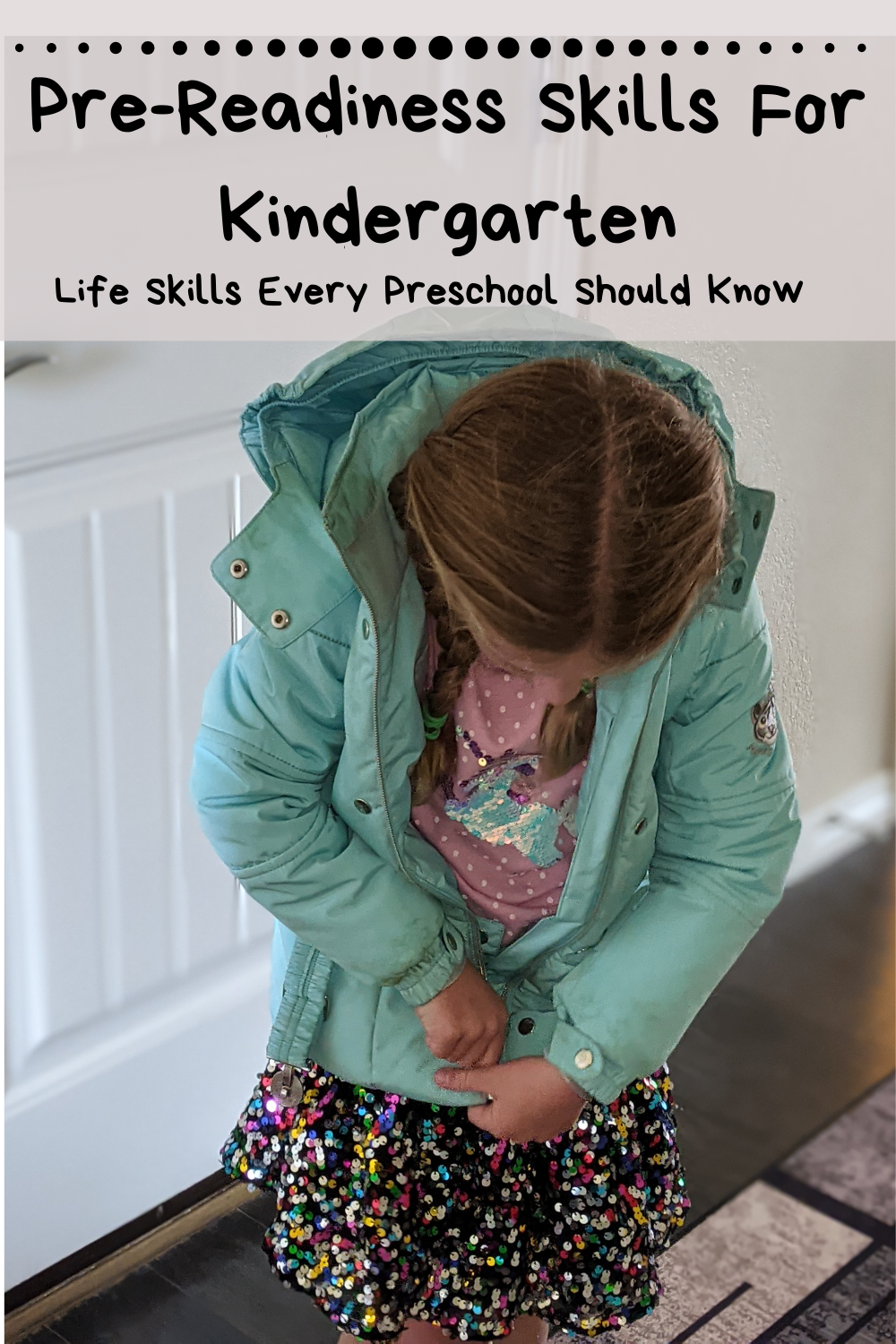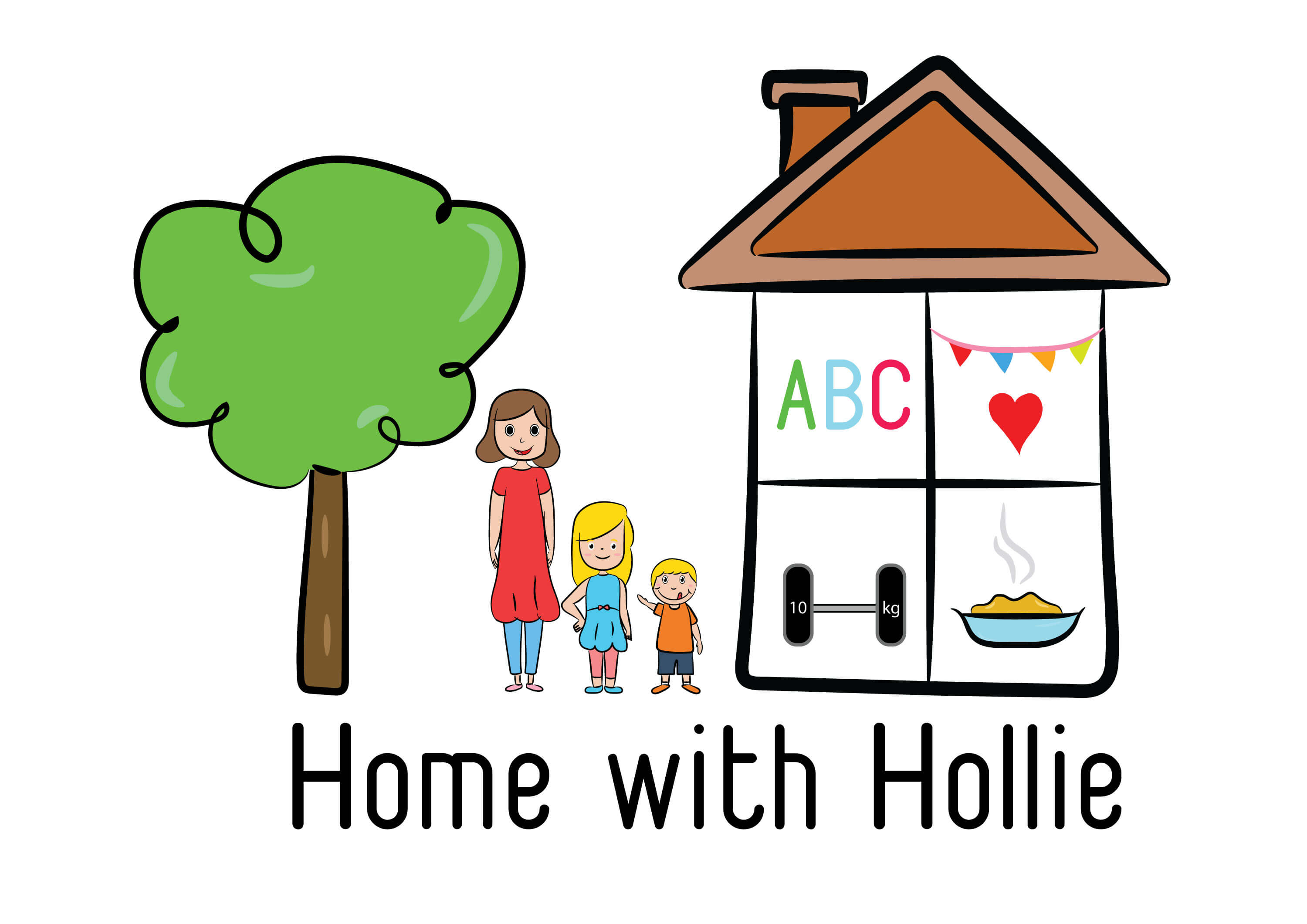
Sharing is caring!
Before your child is ready for more formal schooling, there are certain developmental milestones that you can work on to prepare. These pre-readiness skills for kindergarten will give your preschooler a solid foundation for success at school, and some of these might surprise you!
As your child grows, the ability to do certain tasks reveal school readiness. All of the ideas will help your child build important foundational skills. Life skills, or skills everyone needs to develop for living, are an important step toward kindergarten readiness.
Disclaimer: This blog post contains affiliate links. If you use them, I might be rewarded credit or a commission of the sale. Please note that I only recommend tools that I personally use and love and I always have my readers’ best interest at heart.
Developmental Pre-Readiness Skills for Kindergarten
Life skills like these are not directly related to academics but can have a direct impact on gross motor skills, fine motor skills, visual perceptual skills, and other foundational skills necessary for school success. All of these skills are things you can practice over time, success is not necessary overnight.
Find their name. This is something you can work naturally into every day. Write your child’s name on the bathroom mirror using window chalk. Write your child’s name at the top or bottom of every coloring page or artwork they create. Hang a sign in your child’s room with his or her name on it.
Basic Life Skills
Be able to put on and fasten their shoes. Have your student try every day. Look up easy ways to tie shoes for help!
Open food packaging. If you will be sending your student to school with a packed lunch, it will be so helpful if they can open their own packaging and peel their own fruit. Encourage your child in this, you’ll be surprised what they can do with perseverance. I think sometimes as parents we just do all of these things for our kids all the time and don’t realize what a disservice it is. I have definitely met kids who could put their own straw in a foil drink packet and open their own applesauce packet. It can be done. This is fine motor skills work and is so good for your kids. Don’t make it discouraging though, encourage them to try every day and then help after a few attempts have been made.

Put items in a backpack. Children should learn to unzip and re-zip a backpack to place things inside. If you like, you can also plan together where each type of item will go. Pencils and tissues in one spot, books, and paper in another. That kind of thinking. Soft skills like organizing will develop over time, but there is no reason not to introduce the idea.
Sit quietly for thirty minutes at a time without enticing electronics. This one is tricky. Did you know you can help your child practice this skill? Start with just three to five minutes and build up slowly. Practice every day and only add five minutes per week. Use a podcast or audiobook to give your students something to listen to that they have to focus on. After the listening time, talk about what you heard.
Emotional Readiness
An Appropriate Response to Big Emotions. Kids who haven’t figured out how to manage big emotions well will really struggle with the stress of a new environment. They will struggle to adapt or learn because their bodies and minds and hearts will be wrapped around struggling to cope. Coping skills are essential to kids and adults!
Try this Emotions Tossing Game to get started working on coping skills for big emotions.
Physical Pre-Readiness Skills for Kindergarten
Being able to carry a five-pound bag of groceries or a basket of laundry. A four-year-old should be able to lift a bag of groceries or a laundry basket. If your child is in occupational therapy for low muscle tone, this is one of the things that will be recommended. Just helping with normal household chores like this will help your child develop strong core muscles and overall muscle tone. This helps with sitting still for long periods as well as physical fitness.
Be able to do basic gross motor movements. Skipping, hopping, hopping on one foot, jumping jacks, running, galloping, crab-walking and bear-walking are all-important movement exercises that improve gross motor skills. Children have to reach a certain level of gross motor skills development *before* they can begin to hone fine motor skills. This is just how the human body works. The more you can build gross motor skills before kindergarten, the more your child will be ready for the fine motor work necessary for school.
Read more about the importance of gross motor skills.
Zip a coat. Depending on where you live, your young learner will be going outside for recess and will need a coat. Stop doing this for your child and have them practice doing it for themselves. On and off. Zip and unzip. Make it a game with rewards if you need to. Skittles and M&Ms for the win.

Toys That Help with Gross Motor Skills
Plasma Car. These little cars force a child to use core muscles in order to make the vehicle go. They are also tons of fun!
Balance Bike. If your child hasn’t learned to ride a bike without training wheels yet, get a balance bike or take the pedals off a normal bike and try this method. He or she will be riding a bike in no time! Bikes build core muscles, hand-eye coordination, and overall coordination.

Educational Pre-Readiness Skills for Kindergarten
Pre-Reading Skills. If your child can recognize letters A-Z by name and sound, work mazes, and basic puzzles they will have an advantage when it comes time to learn to read. Little by little you can introduce these skills in preschool and build on them over time. Try these fun ways to learn the alphabet.
Visual Perceptual Skill. Recognizing complex figures on a page and understanding what is seen is a foundational skill. Mazes, coloring pages, crafts, legos and lego diagrams, skill-building worksheets can all help with developing this skill.
Number Sense. Knowing the numbers with names from one to twenty and being able to associate numbers in one-to-one correspondence with items being counted will help prepare your child for math. Teaching your child to recognize number words on sight will help as well.
Try This Hands-On Ten Frame Activity.

Problem-Solving. Figuring out how to make things work and solve problems is a powerful life skill that begins young. One of the main things you can do to foster this skill is to stop doing everything for your child right now. When they take the time to figure out how to do it “all by myself” they are problem-solving. And because their bodies are limited by size and strength, they might surprise you by thinking outside the box and coming up with innovative solutions.
Toys that Help with These Educational Goals.
Puzzles. Puzzles of all kinds are a problem-solving boost. Floor puzzles, wooden puzzles, puzzle games. All kinds of puzzles.
Board Games. Games such as Candy Land, Uno, Go Fish, and Dominoes all help kids with so many foundational skills too numerous to list.
Lego Bricks. If you can only get one toy, get legos. Legos are the best toy on the planet both for fun and for developing brains.
Related Posts
How Much Seat Work Do Preschoolers Really Need?!
People that know me, know how anti seat work I am. I firmly believe that…
March 3, 2020
